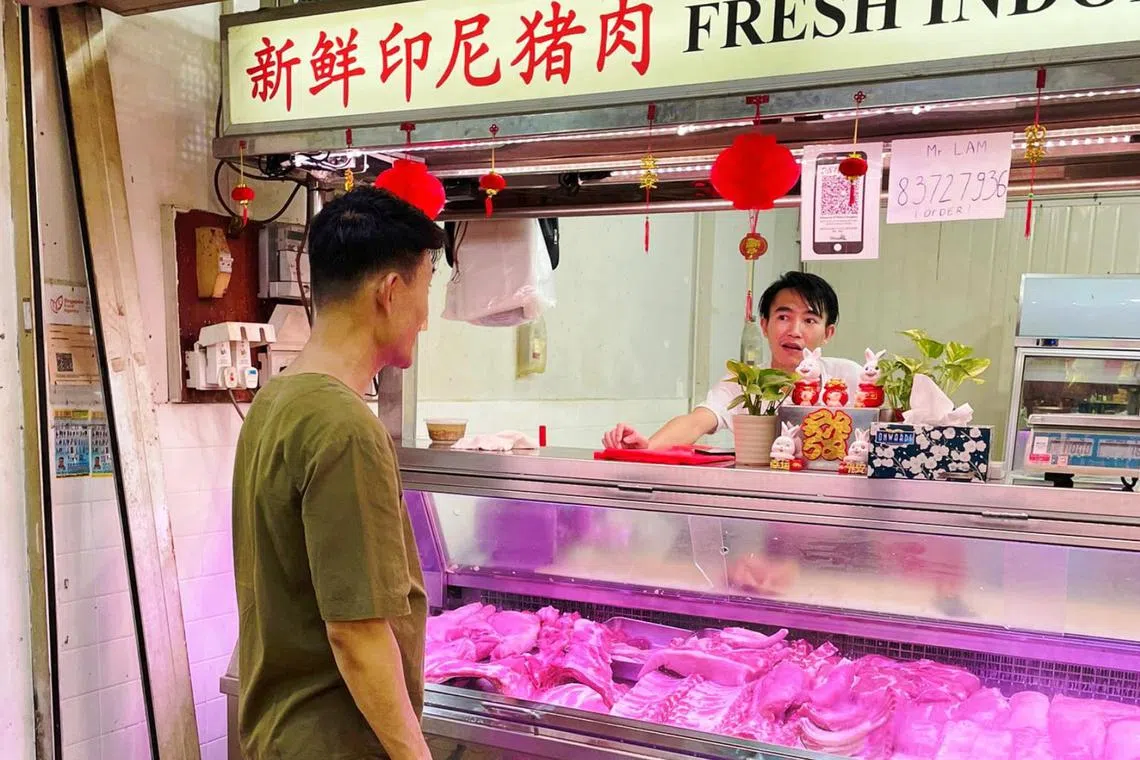Swine fever stops some imports but no need to hoard, S’pore has over 20 pork sources: Baey Yam Keng
Sign up now: Get ST's newsletters delivered to your inbox

Consumers can turn to other sources of protein or consider chilled or frozen pork, said Senior Parliamentary Secretary for Sustainability and the Environment Baey Yam Keng.
PHOTO: BAEY YAM KENG/FACEBOOK
SINGAPORE - Singapore has ample supply of pork and there is no need to hoard, said Senior Parliamentary Secretary for Sustainability and the Environment Baey Yam Keng, after the country stopped the import of live pigs from Pulau Bulan in Indonesia due to African swine fever.
“Singapore imports pork from over 20 sources and there will be enough pork for our needs,” he said in a post on Facebook on Monday.
The issue “is not a food safety concern”, he added. “Consumers can be assured that pork sold in Singapore is safe for consumption.”
Supermarket giant FairPrice said on Tuesday that customers are encouraged to buy only what they need.
“FairPrice has a diversified supply of fresh and chilled pork, with the majority of our supply from Australia and Malaysia,” a spokesman said, adding that frozen pork products from Brazil, Germany and the Netherlands are also available.
Supermarket chain Sheng Siong said its customers are buying only what they need, adding that it will continue to offer fresh and frozen pork from other countries.
A Lazada spokesman said its online grocer RedMart has a diversified supply of fresh and frozen pork, sourced from more than 15 countries, including Australia, Malaysia and Spain.
Dairy Farm International Retail Group, which runs Cold Storage and Giant hypermart, also said it has ample supply of chilled and frozen pork from Australia, Brazil, Spain and Germany.
The Singapore Food Agency (SFA) announced last Thursday that it had halted the import of live pigs from Pulau Bulan,
African swine fever was discovered in a consignment of live pigs from the Indonesian island, which is near Batam.
The virus was detected in pig carcasses at an abattoir in Jurong, where the animals are slaughtered for food, SFA said. This is the first time the disease has been detected in pigs imported into Singapore, it added.
SFA said there would be temporary disruptions to the supply of freshly slaughtered pork from April 23.
The deadly swine disease is highly contagious among wild boars and pigs, but does not infect humans.
Mr Baey, who is also an MP for Tampines GRC, said he checked with pork sellers at Tampines N4 Neighbourhood Centre market last Saturday. “They are aware of this temporary disruption and are uncertain of what will happen when their suppliers run out of stocks in the coming days,” he said.
He added that a chicken seller, who went through the recent export ban of fresh chicken by Malaysia
Mr Baey suggested that consumers turn to other sources of protein such as chicken or fish, or consider chilled or frozen pork.
He said: “Even as we work towards our ‘30 by 30’ goal to have 30 per cent of our nutritional needs produced locally by 2030, we will face disruptions in our food supply from time to time.
“As consumers, we can build our own resilience by being flexible with our food choices.”



